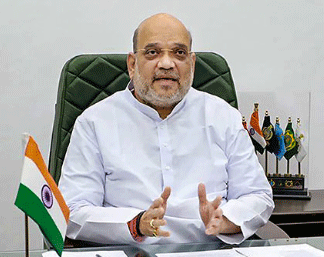New Delhi: Union Minister Co-operation, Amit Shah has said that the Union Government is formulating a new national level policy for cooperatives.
While several steps are taken by the Government to strengthen India’s cooperative architecture, the proposed new Policy will be formulated after receiving comments on Draft Policy from all the stake holders.
Detailing out the steps in a written reply in Lok Sabha, Mr.Shah said that the Government has provided relief to cooperative sugar mills by clarifying that they shall not be subjected to additional income tax for paying higher sugarcane prices to farmers up to the Fair and Remunerative Price (FRP) or State Advised Price (SAP).
He said as per the Budget announcement 2022, the Government reduced the surcharge for cooperative societies from 12% to 7% for those having a total income of more than Rs. 1 crore and up to Rs. 10 crore. Further, to provide a level playing field between co- operative societies and companies, Minimum Alternate Tax (MAT) rate for cooperative societies was reduced from 18.5% to 15%.
He said that Credit Guarantee Fund Trust for Micro and Small Enterprises (CGTMSE), non-scheduled Urban Co-operative Banks, State Co-operative Banks and District Central Co-operative Banks as Member Lending Institutions of the scheme with specified eligibility criteria. This will help in providing adequate, affordable and timely credit to the co-operative institutions to give a boost to the co-operative based economic development model.
He said that the Union Cabinet on 1 June 2022, the mandate of Government e-Marketplace – Special Purpose Vehicle (GeM – SPV) has been expanded to allow cooperative societies to register as buyers on the GeM platform.
A Centrally sponsored project for digitalization of 63,000 functional Primary Agriculture Credit Societies (PACS), with a budgetary outlay of Rs 2,516 crore, has been sanctioned to revitalize the cooperative sector. The implementation of this project has already begun.
In order to diversify the business activities of PACS and make them vibrant multipurpose economic entities, draft model Bye-Laws are being prepared in consultation with State Governments, National Cooperative Federations and other stakeholders.
A new scheme titled “Cooperation to Prosperity” is being formulated in consultation with all the stakeholders for all-round development of cooperatives at all levels.
In order to facilitate the Government to make appropriate policy interventions, a National Co-operative Database is being created in consultation with State/UT Governments, National Co-operative Federations and other stakeholders.
In order to modernize and professionalize the education and training in the cooperative sector, steps are being taken to reorient the training and educational Cooperative Institutions in consultation with all the stakeholders.


